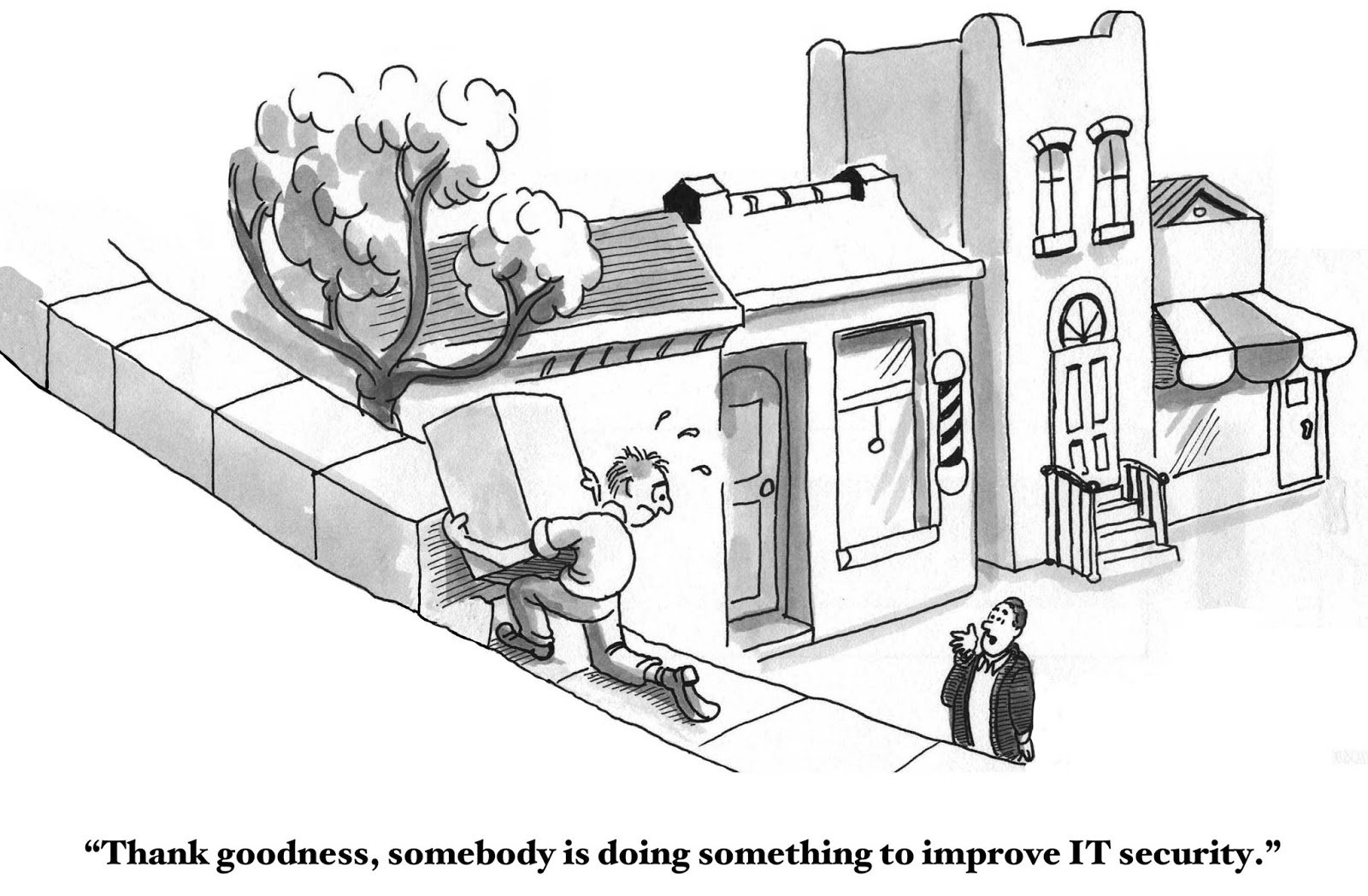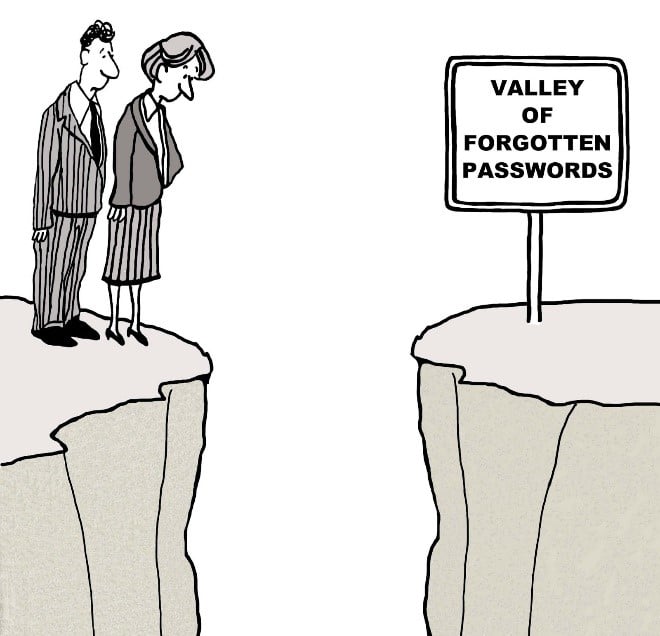


Why Independent Schools must prepare pupils for jobs that haven't been invented
Originally posted on 19 September 2017
Read more
Why Every Independent School needs a list of Specific Unknown Problems!
Originally posted on 3 April 2017
Read more
How would your Independent School cope with 22 hours of ICT Downtime?
Originally posted on 12 June 2017 In the wake of British Airways catastrophic IT Failure which left so many passengers stranded at airports at the start of half term, I thought it would be timely today to talk about disaster recovery. As anyone who has ever experienced network downtime will know, it is amazing how crippling an ICT system failure is to a school, and how far reaching the consequences can be. Not only does an outage create classroom and administrative operational chaos, it can also have serious consequences for the school’s reputation, particularly where there is loss of critical data such as pupils’ coursework, or a breach of security around confidential pupil data. Interested in finding out how educateIT could help improve your schools disaster recovery? Download our FREE White Paper >> Whilst many schools I talk to tend to associate ICT downtime with large events such as fires or floods, the reality is that the majority of ICT downtime has much more mundane causes which can include hardware failures, loss of power, cyber security breaches (such as ransomware attacks) and software failures. And in many cases the downtime is considerable, with the EMC Global Data Protection Index 2016 study showing that the average length of unplanned downtime was 22 hours. Indeed the situation seems to be worsening this year, with ICT downtime caused by ransomware attacks in particular often running into a week or more. And while many of us can work around a short system outage, when such outages are extending into days or even weeks there can be a serious impact on the school’s operations and reputation. As such, it is critical that the senior leadership team have a thorough understanding of their risk management processes and contingency procedures around network resilience, backups and disaster recovery. So is it enough to have a disaster recovery plan? Sadly I fear not. I’m sure BA had a disaster recovery plan, but how well did it work when it was used in anger? For many schools, I find the disaster recovery plan that was put together some years ago and has sat in the fireproof safe ever since, without testing or updating. My experience is that this document needs to be constantly evolving, as our use of technology in education has moved on apace, and what was an acceptable recovery plan a couple of years ago may now be totally inadequate. In addition, our systems are constantly changing, with software updates and security fixes being installed on a regular basis, all of which can impact on the technical success of a recovery. In order to ensure ongoing relevance, I always recommend that schools continually re-assess and test their plans around resilience, backup and disaster recovery, against the operational needs of their school and their changing use of technology. Some points to consider would include:-
Read more

Getting the best value from ICT Budgets in Independent Schools
Originally posted on 9 January 2017 With ever increasing demands for new and improved technology in independent schools, it is easy for ICT to become a bottomless money pit. Naturally, every school wants to use technology to enhance the learning environment, equip pupils for the digital world that they will be living and working in, as well as ensure that the school is keeping up with its competitors and using technology in a way that will serve to attract further pupils to the school. The bursar however, has the unenviable job of trying to balance all these laudable ambitions against a limited budget!
Read more
Monetising your school’s ICT facilities
Originally posted on 22 May 2017 Independent schools spend a significant amount of money on ICT facilities both to enhance the learning environment and to ensure the smooth running of the school’s administrative function. Whilst most schools will look to incorporate messages about their ICT facilities into their marketing literature to attract new pupils, there is also the opportunity to leverage ICT to generate income from other sources too.
Read more
Public Benefit – another job for a beleaguered bursar?
Originally posted on 6 February 2017
Read more
GDPR – Understanding and Securing your School’s Data
Originally posted on 8 May 2017 I wanted to start by further exploring the importance of understanding what personal data you hold in Independent Schools and where that confidential data is stored. Bear in mind personal data can be as simple as a pupil, teacher or parent’s name or email address. This may sound like an odd topic, as I'm sure many of you are thinking you know exactly where all your schools’ data is held. But do you really?
Read more
Protecting your School's Network Manager from Stress and Burnout
Originally posted on 26 June 2017
Read moreSubscribe here!
Recent Posts
Posts by tag
- technology (128)
- Security (113)
- IT Security (100)
- cyber security (100)
- Managed Service (74)
- modern technology (71)
- Microsoft 365 (69)
- IT support (68)
- Cloud (66)
- business (63)
- cyber attack (61)
- cloud computing (60)
- cloud it (56)
- cybersecurity (56)
- microsoft (56)
- workplace (55)
- Microsoft Teams (54)
- Working from home (51)
- IT (49)
- productivity (49)
- office (46)
- office 365 (45)
- Password Security (43)
- entrustit (42)
- employees (39)
- Uncategorised (38)
- Cyber (37)
- flexible work (37)
- Remote (33)
- efficiency (31)
- Hosted Workspace (30)
- hosted desktop (30)
- it support bournemouth (30)
- schools (29)
- cyber privacy (28)
- email security (28)
- independent schools (28)
- it support dorset (27)
- school ict (27)
- collaboration (26)
- computing (26)
- 2023 (25)
- it support hampshire (25)
- public cloud (24)
- it consultancy (22)
- IT audit (21)
- entrust (20)
- it consultancy bournemouth (20)
- it support southampton (20)
- msp (20)
- password (20)
- it consultancy dorset (19)
- it consultancy hampshire (19)
- passwords (19)
- ransomware (19)
- hosted applications (18)
- it support winchester (18)
- VoIP (17)
- cloud cctv (17)
- cloud voip (17)
- covid19 (17)
- hacking (17)
- it consultancy southampton (17)
- private cloud (17)
- IT costs (16)
- data (16)
- teamwork (16)
- Coronavirus (15)
- cctv (15)
- office 365 support (15)
- GDPR (14)
- hackers (14)
- internet (14)
- network (14)
- Protection (13)
- covid-19 (13)
- hack (13)
- internet safety (13)
- management (13)
- Hosted Desktop and Applications (12)
- Windows Virtual Desktop (12)
- hardware (12)
- hybrid cloud (12)
- vulnerabilities (12)
- windows 10 (12)
- 2020 (11)
- 2022 (11)
- Microsoft Planner (11)
- artificial intelligence (11)
- awards (11)
- data breach (11)
- phishing (11)
- AI (10)
- Hampshire (10)
- IT Director (10)
- digital (10)
- uk (10)
- windows (10)
- Backup (9)
- attack (9)
- bitwarden (9)
- eu (9)
- planning (9)
- software (9)
- telephony (9)
- usecure (9)
- communication (8)
- desk phone (8)
- education (8)
- outsource (8)
- partnership (8)
- staff (8)
- Bournemouth (7)
- Cyber Essentials (7)
- Dorset (7)
- Google (7)
- OneDrive (7)
- award winning (7)
- cloud storage (7)
- european union (7)
- infrastructure (7)
- legal (7)
- mobile (7)
- offsite backup (7)
- 2019 (6)
- AI CCTV (6)
- Access Management (6)
- Apple (6)
- Cyber Essentials Plus (6)
- ISO (6)
- News (6)
- Skype for Business (6)
- apps (6)
- architect (6)
- child protection (6)
- hacks (6)
- internet of things (6)
- iot (6)
- legal it (6)
- mobile phones (6)
- onsite backup (6)
- password manager (6)
- remote desktop service (6)
- resources (6)
- virus (6)
- 3d design desktop (5)
- Azure (5)
- Case Studies (5)
- Desktop (5)
- IP (5)
- Microsoft Copilot (5)
- Multi-Site Business (5)
- Risk assessment (5)
- Thames Valley Tech & Innovation Awards (5)
- The Business Magazine (5)
- Windows 7 (5)
- award (5)
- brexit (5)
- designer (5)
- ios (5)
- legacy (5)
- modern work (5)
- personal data (5)
- smartphone (5)
- sophos (5)
- surrey (5)
- united kingdom (5)
- website (5)
- Attacks (4)
- BYOD (4)
- ChatGPT (4)
- DR (4)
- DR planning (4)
- Facebook (4)
- Government (4)
- High Growth (4)
- MDR (4)
- Managed Service Provider of the Year (4)
- Microsoft Forms (4)
- SharePoint (4)
- Tech Growth (4)
- VPN (4)
- WannaCry (4)
- Zoom (4)
- budgets (4)
- computer performance (4)
- ddos (4)
- digital transformation (4)
- disaster recovery (4)
- law (4)
- meetings (4)
- online meetings (4)
- proactive (4)
- remote learning (4)
- sme (4)
- windows 11 (4)
- wireless internet bournemouth (4)
- wireless internet southampton (4)
- 2021 (3)
- 2024 (3)
- 5G (3)
- Dorset Chamber (3)
- EDR (3)
- Fourth Industrial Revolution (3)
- General (3)
- Google Drive (3)
- Hampshire Chamber (3)
- Help (3)
- Local (3)
- Microsoft Autopilot (3)
- NHS (3)
- New Forest (3)
- South Coast Tech & Innovation Awards (3)
- Tech Company of the Year (3)
- Thames Valley (3)
- Tiva (3)
- acquisition (3)
- big switch off (3)
- citrix (3)
- closed cloud (3)
- copilot (3)
- copilot pro (3)
- digital hub (3)
- guide (3)
- innovation (3)
- instagram (3)
- intelligence (3)
- london (3)
- smart buildings (3)
- storage (3)
- strategy (3)
- teaching (3)
- trump (3)
- twitter (3)
- video conferencing tools (3)
- zero touch deployment (3)
- zero-trust (3)
- 2016 (2)
- 2018 (2)
- BGL Company (2)
- Bourne Group (2)
- Burhill (2)
- Burhill Group (2)
- CAD (2)
- Environment (2)
- Firewall (2)
- GPT-4 (2)
- Gen Z (2)
- Hampshire Business Awards (2)
- ISBA (2)
- Macs (2)
- Mr Mulligans (2)
- PaaS (2)
- Privacy Shield (2)
- Sydenhams (2)
- Wifi (2)
- XDR (2)
- afc bournemouth (2)
- afcb (2)
- android (2)
- b2b (2)
- bcs (2)
- berkshire (2)
- blockchain (2)
- broadband (2)
- camcloud (2)
- cryptocurrency (2)
- dark web (2)
- downtime (2)
- dropbox (2)
- eagle eye networks (2)
- east grinstead (2)
- exhibition (2)
- farnham (2)
- finalist (2)
- legalex (2)
- machine learning (2)
- macos (2)
- organisation (2)
- paypal (2)
- predictions (2)
- president (2)
- reading (2)
- serval systems (2)
- smart sensors (2)
- solent (2)
- us (2)
- utility management (2)
- 1998 (1)
- 2026 (1)
- AMD (1)
- ARM (1)
- Abbey Hill (1)
- Aldwickbury Park (1)
- BBC (1)
- BUNKERS! (1)
- Bedford (1)
- Bedfordshire (1)
- Birchwood Park (1)
- Burnout (1)
- CEO (1)
- Central South Business Awards (1)
- Cloud VMS (1)
- Cloudtango (1)
- Comms Dealer (1)
- East Midlands (1)
- Endpoint 100 (1)
- Go Integrator (1)
- Growth 100 (1)
- Harvey Jones Kitchens (1)
- Hoebridge (1)
- Hospitality (1)
- Ignite 2018 (1)
- Ignite 2020 (1)
- Insider (1)
- Intune (1)
- Jeff Dodd (1)
- LLM (1)
- Leaders (1)
- Loop (1)
- M&A (1)
- MFA (1)
- MPLS (1)
- MSP Select 2024 (1)
- Market (1)
- May (1)
- Multi Factor Authentication (1)
- MyAnalytics (1)
- Ninja Warrior UK (1)
- PBX (1)
- PM (1)
- Power BI (1)
- Ramsdale Park (1)
- Redbourn (1)
- Regulation (1)
- Reid Steel (1)
- SD-WAN (1)
- Surrey Business Awards (1)
- Thornbury (1)
- WCry (1)
- WannaCrypt (1)
- Windows Autopilot (1)
- Wycombe Heights (1)
- ashley madison (1)
- bandwidth (1)
- battersea (1)
- beach (1)
- big data (1)
- black friday (1)
- bloatware (1)
- brand (1)
- builders merchant (1)
- business growth (1)
- business process audit (1)
- cambridge analytica (1)
- canada (1)
- cia (1)
- clinton (1)
- cnn (1)
- co op (1)
- compliance (1)
- connectivity (1)
- copyright (1)
- crime (1)
- cyber monday (1)
- cyber resilience act (1)
- dean drako (1)
- defence (1)
- dkim (1)
- dmarc (1)
- dns (1)
- donald (1)
- dyn (1)
- election (1)
- enterprise (1)
- epos (1)
- equality (1)
- executive order (1)
- facial recognition (1)
- fax (1)
- football (1)
- gchq (1)
- grinstead (1)
- hiring (1)
- intel (1)
- intercept x (1)
- interview (1)
- josh widdicombe (1)
- knights of old (1)
- landmarks (1)
- learning (1)
- legal technology forum (1)
- leisure (1)
- meltdown (1)
- millennials (1)
- mimecast (1)
- mirai (1)
- no-deal (1)
- number plate detection (1)
- onsite (1)
- outsourcing (1)
- paper (1)
- patisserie valerie (1)
- performance reviews (1)
- pound (1)
- premier league (1)
- private equity (1)
- procrastination (1)
- qualys (1)
- recruitment (1)
- research (1)
- retail (1)
- roundtable (1)
- samsic (1)
- sharefile (1)
- smishing (1)
- snowden (1)
- solent business awards (1)
- solentBA (1)
- spectre (1)
- spf (1)
- sterling (1)
- storm (1)
- talktalk (1)
- trumppresident (1)
- ukitawards (1)
- united states (1)
- usa (1)
- vault 7 (1)
- vitality stadium (1)
- vulnerability scanning (1)
- whatsapp (1)
- white (1)
- white house (1)
- wikileaks (1)
- women in business (1)
- xiongmai (1)
- year (1)


Why Independent Schools must prepare pupils for jobs that haven't been invented
Originally posted on 19 September 2017
Read more
Why Every Independent School needs a list of Specific Unknown Problems!
Originally posted on 3 April 2017
Read more
How would your Independent School cope with 22 hours of ICT Downtime?
Originally posted on 12 June 2017 In the wake of British Airways catastrophic IT Failure which left..
Read more

Getting the best value from ICT Budgets in Independent Schools
Originally posted on 9 January 2017 With ever increasing demands for new and improved technology in..
Read more
Monetising your school’s ICT facilities
Originally posted on 22 May 2017 Independent schools spend a significant amount of money on ICT..
Read more
Public Benefit – another job for a beleaguered bursar?
Originally posted on 6 February 2017
Read more
GDPR – Understanding and Securing your School’s Data
Originally posted on 8 May 2017 I wanted to start by further exploring the importance of..
Read more
Protecting your School's Network Manager from Stress and Burnout
Originally posted on 26 June 2017
Read more